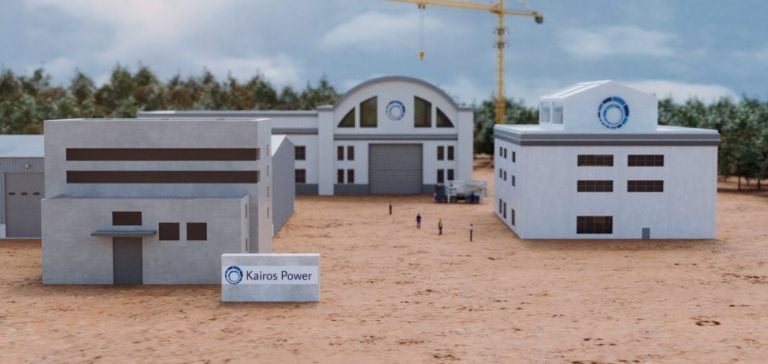Google has officially announced its intention to purchase nuclear energy from the American startup Kairos Power. This partnership aims to provide energy through small modular reactors (SMR), an innovative technology in the nuclear sector. The agreement, revealed this Monday, marks an important step for Google in its quest for sustainable and reliable energy sources.
The contract plans for the first SMR from Kairos to be operational by 2030, with a gradual ramp-up until 2035. This initiative aims to address the exponential energy needs of Alphabet’s subsidiary, the parent company of Google. However, Google has not disclosed the financial details of this transaction, keeping those details confidential.
Increasing Energy Demand in Cloud Computing
The rise of remote computing, also known as cloud computing, has significantly increased the energy consumption of major players in the sector such as Google, Microsoft, and Amazon. This increase is primarily due to the intensive use of server storage centers, or data centers, which require a large amount of electricity to operate optimally.
These data centers have become even more crucial with the development of generative artificial intelligence (AI). Generative AI requires massive amounts of data and large quantities of semiconductors to process and exploit that information. To ensure sufficient electricity supply, major cloud players are turning to renewable energy providers, including the nuclear sector.
Strategic Partnerships in the Nuclear Sector
At the end of September, Microsoft announced a partnership with Constellation Energy, an American energy group, aiming to reactivate a reactor at the Three Mile Island nuclear plant in Pennsylvania. This plant was the site of a major nuclear incident in 1979, leading to the permanent shutdown of the second reactor. The reopening of this reactor demonstrates the growing interest of large technology companies in modern and safer nuclear energy sources.
SMRs, such as Kairos’s Fluoride-salt-cooled High-temperature Reactor (FHR), represent a new generation of nuclear reactors. Currently, no SMR is operational in the United States, although their design promises a less costly and more flexible energy production compared to traditional nuclear power plants. These reactors are designed to be manufactured in factories, reducing construction times and associated costs.
Challenges and Prospects of SMRs
The development of SMR prototypes requires significant investment, which poses a major challenge for startups in the sector. Despite these high initial costs, SMRs are seen as a viable long-term solution for providing clean and reliable energy. Unlike conventional reactors, SMRs are modular and can be produced in factories, thereby reducing construction timelines and costs.
Another startup, NuScale Power, was the first to have its SMR approved by U.S. regulators. However, its most advanced project, located in Idaho, was canceled at the end of 2023, highlighting the challenges faced by companies in this field. Despite these obstacles, Kairos Power received approval from the U.S. Nuclear Regulatory Commission (NRC) at the end of 2023 to begin construction of its first experimental reactor in Oak Ridge, Tennessee, with commissioning planned for 2027.
Implications for the Energy Sector
The adoption of SMRs by companies like Google could transform the energy landscape by offering a more flexible and potentially less expensive alternative to traditional nuclear power plants. This transition to modular energy sources could also stimulate innovation in the sector and encourage other companies to explore similar partnerships.
Furthermore, the commitment of major technology companies to the development of nuclear energy could accelerate research and the development of safer and more efficient technologies. This could also enhance energy resilience by diversifying supply sources and reducing dependence on fossil fuels.






















